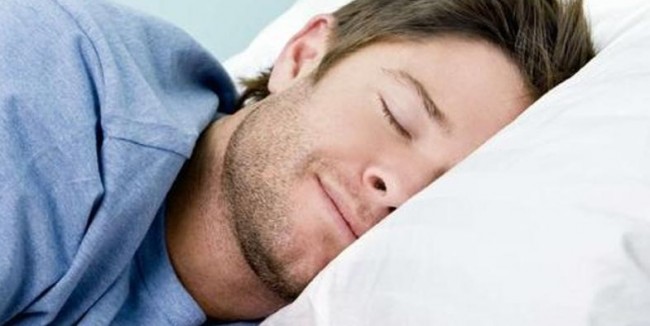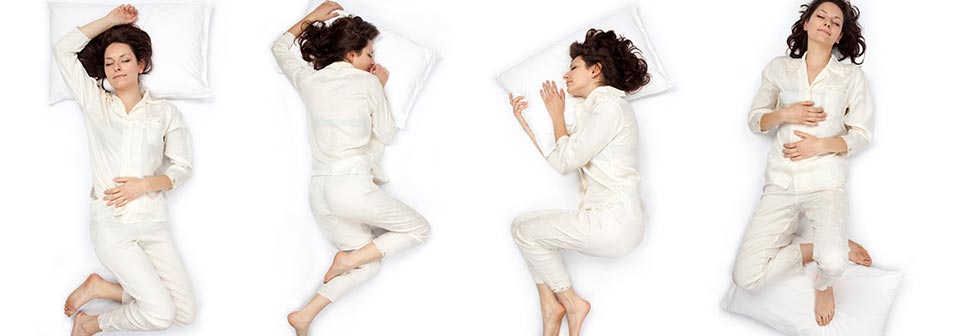Sleeping well is important for maintaining good health: a good sleep prevents fatigue, irritability and blemishes but above all allows the proper functioning of the immune system, reducing the risk of contracting infections or diseases in General.
Sleep is a physiological activity necessary for survival, which allows us to retrieve the mental and physical energy expenses during the day, the benefits are obvious and yet because of wrong habits or stress that life we submit, for most people, sleep is not so RESTful and relaxing as it should, especially in certain stages of life.
Why is it important to rest properly? And what are the remedies for a good night's sleep? This is what we will try to clarify in the article through a short journey full of advice on how, how much and how you have to sleep to wake up really rested.
Why it is important to sleep well?
Awareness of the importance of rest helps to understand the need to treat such activity in each human being takes, on average, about one third of his entire life.
A good sleep serves to the body to regenerate.
During deep sleep, REM not stage the fourth stage, the pituitary gland produces growth hormone, thanks to which our bodies eliminate toxic waste and reconstructs the cells that die every day.
It serves the central nervous system to fix the memory.
During REM SLEEP the brain stores and laying down what he learned during the day.
Need to mind to download all the psychic tensions.
The brain, in fact, through dreams, relaxes and soothes anxiety accumulated during the day.
How many hours do you sleep because sleep be the fullest benefits?
 Since sleep has a well defined architecture is to dispel the belief that is not as important as you sleep, but how. Although there are individuals who feel rested asleep a number of hours less than others, there are minimum times which must be respected. In fact there are two stages, REM sleep and non-REM which in turn has four different stadiums.
Since sleep has a well defined architecture is to dispel the belief that is not as important as you sleep, but how. Although there are individuals who feel rested asleep a number of hours less than others, there are minimum times which must be respected. In fact there are two stages, REM sleep and non-REM which in turn has four different stadiums.
Normally you pass from REM sleep to four stages not REM, and each stage has specific functions. Ensure that all stages can be accomplished, and then both the physical and the mind can regenerate, we need a certain amount of time ranging on average from 7 to 8 hours.
However the time spent sleeping and how a person is feeling rested when you wake up, is influenced by many factors:
- Tanning hours by age: children generally sleep for far longer hours: babies sleeping
from 15 to 16 hours, while towards the ten years need 10 hours of sleep. While at a
adults need 7 8 hours, the elderly may suffice even if only 6/7 hours of sleep. - Emotional factors: level of excitement and stress.
- Diet: certain substances or additives contained in foods such as caffeine, spices and glutamate can
affect your sleep. - Use of medications: certain medications in fact cause drowsiness, others disturb sleep.
Then a certain number of hours sleep is a very important aspect to maintaining good quality of life, but in addition to the quality of sleep is as important as quantity that must be constant and unbroken to feel rested and refreshed upon waking, both mental and physical level.
The causes of sleep disorders and recommendations to address them and rest better
Unfortunately you can't always sleep well, sleep disorders are, beyond what you may believe, common to many people, especially women, and can be caused by psychological factors such as anxiety of having to do something important the next day or even by environmental and social factors, such as a cushion uncomfortable or challenging that involves strong responsibility etc.
It is therefore important to find out if it's occasional insomnia or phenomena of real pathology, the first are ubiquitous, is often linked to transient conditions and details and tend to arginarsi alone, in other cases the no sleep becomes a real pathology such as insomnia, Hypersomnia, sleep apnea syndrome or parasomnias against which it is essential to intervene with specific remedies.

As mentioned, however, very often the bad sleep is not a sign of Pathology but may be an expression of a temporary physical or psychological imbalance whereby small measures are enough to return to the natural physiological state of diurnal rhythm, let's see what are the main factors that affect negatively the sleep.
- Stress and worry are the main responsible for a restless sleep. Stress affects the difficulty in getting to sleep while the depression on its continuity. Stress and anxiety activates the adrenal gland, an endocrine gland that increases the production of cortisol, a hormone that alters the normane relationship diurnal rhythm.
- Environmental factors determined by the condition of bedroom, from lighting, from
temperature, or from noise and not least from a bad mattress or pillow. - Incorrect lifestyle due to sedentary lifestyle or poor eating habits.
When not being able to sleep well depends on this kind of factors may be useful and, of course, try to eliminate the nuisance, resorting to a natural supplement such as melatonin.
Regular rhythm diurnal rhythm: the role of melatonin for sleep peacefully
Melatonin is a hormone produced by the pineal gland that regulates the pace cicadiano of diurnal rhythm, or biological clock. Its production increases with the darkness and decreases in the morning when the light hits the retina that sends the signal to the pineal gland (pineal gland). It has sedative effect and allows the body to rest. Given its melatonin is used to treat sleep disorders and limit the effects of the change in time zone called jetlag. According to recent studies, 3/5 mg of melatonin taken on the day of departure and for two or three nights after arrival can bring benefits to subjects exposed to such changes in physiological rhythms, adjusting to the new time zone. An integration of melatonin can also be useful to those who have problems sleeping.
The tips for better sleep
So far we have emphasised the importance of a regular and quality rest, indispensable for
face with the right vitality normal daily activities, but it is from them that we must begin to
eliminate the causes which disturb continuity and quality of sleep, then we see some useful advice for
sleep better:
Feeding properly. For a good night's sleep would be helpful, especially in the evening, light food,
that contain tryptophan, a substance that relaxes naturally and vitamin B6 that facilitates the absorption of tryptophan. The ideal diet should be rich in fish, milk, yogurt, legumes, dried fruit, rice, white meats and fruit. In General, fruits, vegetables and yogurt are doubly important role u because they contain potassium, the lack of which may cause insomnia.
Eliminate alcohol and stimulants. You should completely eliminate from your diet all alcohol and exciting beverages such as tea, coffee or energy drink. It would be useful to also do not smoke since
nicotine still has an exciting effect.
Have regular hours. To regulate the body's sonnovegli pace we should try to go
to sleep and get up at the same time, regardless of how much you've actually slept.
Create a comfortable environment. The bedroom should have soft colors on the walls, be in
half-light and quiet and not too hot nor too cold. If the noise disturbs the sleep may be useful
the use of earplugs in case of persistent noise can be necessary to coat the walls
with insulating materials. The bedroom should also be used for sleeping, not eating,
watch television or engage in other activities related to the vigil.
 The choice of the mattress. It is also important to choose an ergonomic mattress and not too hard, not too soft, able to support the body adapting to it and respecting our body structure.
The choice of the mattress. It is also important to choose an ergonomic mattress and not too hard, not too soft, able to support the body adapting to it and respecting our body structure.
A good mattress should not to plunge the body, must give proper support to various parts of the body so you don't strain your back. It must also be hypoallergenic to prevent
of mites and fungi that are primarily responsible for allergies. The bedding should be made of natural fibers that allow good breathability and then a comfortable sleep. The covers must be hot and read, so as to avoid both the cold and excessive sweating.
And the pillow. In addition to the choice of the mattress you have to pay attention also to the pillow,
moving towards one allowing the head to sink on right so that it is aligned with the
spine. The pillow so it must not be too high or too low, having cotton pillowcase
that allows perspiration. Place a pillow between your knees or below the waist can cause
the most comfortable positions.
>>> Try our pillows to improve the quality of your sleep <<<
Take in the bed a comfortable position. The correct position is supine, as it allows the spine to maintain a correct position, and prevents back pain. However many find it uncomfortable and prefer to sleep sideways a position suitable to pregnant women as it promotes the circulation. The lateral position reduces snoring. Vertebral pain can be helpful with a large pillow between your knees.
Relax. If we can't get to sleep, get out of bed and do some other activity that may relax the mind: a warm bath, watch television, read a book, listen to music.
The role of physical activity. Exercise and sport are very important for a good rest, but the sport should not be practiced in the late evening hours otherwise the adrenaline produced could make us fall asleep difficult. The ideal is to perform physical exercises 5 or 6 hours before going to sleep that is the time when the body temperature drops after rising due to physical activity and thus more inclined to sleep.
Drinking a cup of herbal tea. Before you go to bed you can drink an herbal tea based on natural herbs which balance sleep among the most effective are: Chamomile, lime, verbena, orange flower, passion flower and Valerian.
Even a glass of warm milk, as indicated by the grandmothers, may help.
Natural remedies for insomnia ’
Another alternative to herbal teas are tablets, and drops always made acting herbal
relaxing sedative either alone or in combination between natural remedies, most effective include:
 Valerian: one of the main plants and perhaps the most widely used to combat sleep problems and it is also suitable for anxiety and stress. Its use is extremely old.
Valerian: one of the main plants and perhaps the most widely used to combat sleep problems and it is also suitable for anxiety and stress. Its use is extremely old.- Lemon balm: appears to play a double sedative action is in the nervous system and in the stomach, relieving such as stomach pain or heavy feeling, caused by stress or tension.
- The’ California poppy: is used to improve sleep quality and reduces the time it takes to fall asleep.
- Hawthorn: is useful especially for those people a little’ anxious they can't fall asleep.
- Chamomile: sedative, but not really does relax you, for this is primarily used by those suffering from abdominal or digestive complaints, in fact reduces spasms and abdominal cramps and AIDS digestion.
Source: www.benessere360.com








